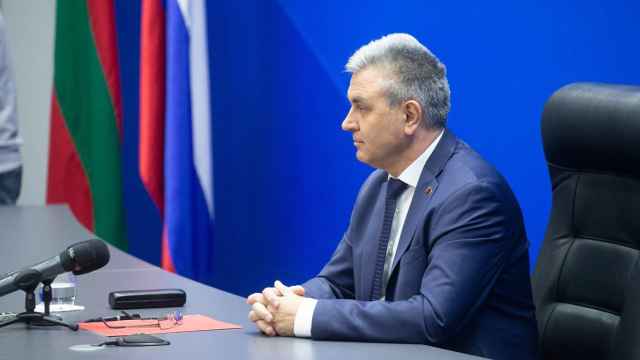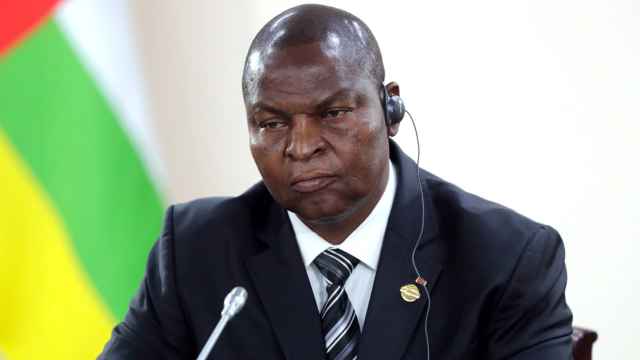The MT Conferences section did not involve the reporting or the editorial staff of The Moscow Times.
 Sergey Zuykov
Sergey Zuykov
Director General
Zuykov&Partners
EU officials are alarmed: Russia is No. 2 in the rating of counterfeit products' manufacture and sale, while China is still No. 1. Mass media and officials emphasize the fact that illegal products cause serious damage to the budget and consumers, though hardly anybody remembers the losses suffered by Russian and foreign manufacturers. It is impossible to calculate how much Russian business loses from counterfeit products, but the amount will clearly be enormous.
Generally, counterfeit products are not the same: Sometimes they are completely different from the trademark holder's products and look nothing like the original. Yet, there are also counterfeit products that are hardly discernible from original products. All counterfeit products have something in common, and that is their poor quality, since the main objective of all clandestine manufacturers is to gain maximum profit and save on materials and technologies. Nevermind the fact that the counterfeit products never comply with any GOSTs or specifications to the relevant group of products. The counterfeit quality causes more damage to the trademark holder's company, than just the material damage, since counterfeits harm both the company's reputation and consumers' trust.
If your products are tampered with, collect the evidence and try to find the offender. As a rule, the main problem of any counterfeit case lies in the necessity of proving that it was the defendant company that infringed your rights and illegally used your trademark. Counterfeit samples, any papers confirming sales, notarized protocol of website inspection (in case of counterfeit sales via Internet) may serve as evidence of the defendant's guilt.
No less important is the correct estimation of your company opportunities, particularly the investigation into the way the trademark used on counterfeit products was registered. Could any errors or breaches of legislation have taken place? Is the registration still valid? Only if you are sure that your rights are valid can you move on. Otherwise, before you start fighting the counterfeits, you must eliminate all discrepancies and ensure 100% protection for your trademark.
Current legislation offers a few variants of trademark protection to a trademark holder, but in any case, start your trial by sending a pre-trial claim to the defendant. In many cases, it is sufficient if not to settle the dispute, to at least start negotiations with the person violating your rights. In your claim, you must demand that the defendant company stop using the trademark you own, and point out that such use is illegal, with documents certifying your rights attached. If the violator neglects your notice and continues to use your trademark, it proves their willful misconduct and deliberate use of your image. Obviously, the holder cannot count on an amicable settlement in this case.
Another way to protect your rights is to file a claim to police, under which an administrative or a criminal case can be initiated. If it is an administrative case, the violator will be fined, but if it's a major violation, exceeding 1.5 million rubles, punishment will be far more serious. Police are entitled to seize or destroy the counterfeit products, but, unfortunately, they cannot forbid the violator from using the products. Only a court can pass such a judgment.
You may file a claim with the court either after the investigation is completed by the law enforcement agencies or simultaneously with the police investigation. In the former scenario, if the police confirm that there was a violation, you will not have to prove anything to the court; you just file an application to grant an injunction concerning the trademark's use, and to receive compensation of up to 5 million rubles, or double the value of the counterfeit products. In the latter scenario, you must present all the evidence of the defendant's guilt.
Still there is another option: to file an application with the Federal Anti-Monopoly Service to recognize the violator's actions an act of unfair competition. You may apply either to the federal department, or to the regional offices of FAS. The main advantage of filing a claim with the FAS before going to court is that FAS officers may call for documents confirming the fact of infringement from the defendant, while when filing a claim to the court, the holder bears the burden of collecting evidence.
If the Federal Anti-Monopoly Service recognizes that the defendant company is guilty of unfair competition, there may be a fine amounting to 1-10 percent of the turnover of each group of counterfeit products sold by the company. So if alcoholic drinks, say, vodka, are counterfeited, and the violating company plans to sell 15 various brands, the amount of the fine will be calculated on the basis of the turnover of all the products of this group.
Where to go first, and how to plan your actions in order to defend your rights most efficiently and with minimum losses depends on each individual case. In some situations, you should appeal to one of the above-mentioned agencies. In others, you should file claims to several agencies at a time. Only an expert may advise on what to do in your individual case.
The MT Conferences section did not involve the reporting or the editorial staff of The Moscow Times.
A Message from The Moscow Times:
Dear readers,
We are facing unprecedented challenges. Russia's Prosecutor General's Office has designated The Moscow Times as an "undesirable" organization, criminalizing our work and putting our staff at risk of prosecution. This follows our earlier unjust labeling as a "foreign agent."
These actions are direct attempts to silence independent journalism in Russia. The authorities claim our work "discredits the decisions of the Russian leadership." We see things differently: we strive to provide accurate, unbiased reporting on Russia.
We, the journalists of The Moscow Times, refuse to be silenced. But to continue our work, we need your help.
Your support, no matter how small, makes a world of difference. If you can, please support us monthly starting from just $2. It's quick to set up, and every contribution makes a significant impact.
By supporting The Moscow Times, you're defending open, independent journalism in the face of repression. Thank you for standing with us.
Remind me later.





